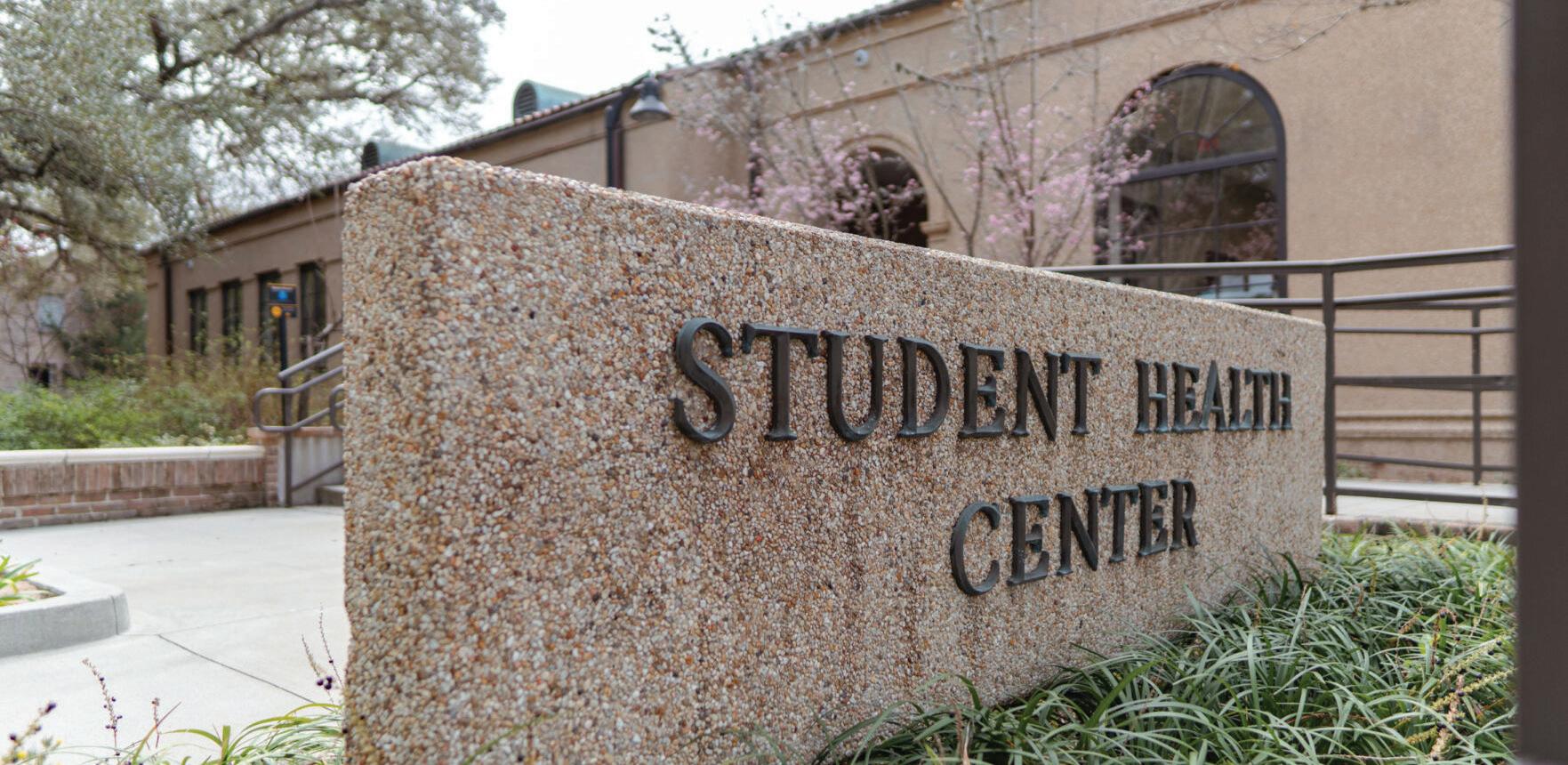
4 minute read
College students’ mental health deserves more attention
from The Reveille 2-9-23
by Reveille
BESKE’S BUZZ
KATE BESKE
Advertisement
@KateBeske
Mental health issues are quickly being destigmatized, and people are able to openly discuss these issues more, but college students’ mental health still suffers.
“Up to 44% of college students reported having symptoms of depression and anxiety,” according to the Mayo Clinic.
Between 2020 and 2021, more than 60% of students met the criteria for at least one mental health issue, which was nearly a 50% increase since 2013, according to a 2022 study by National Healthy Minds.
College administrators need to focus on services directed at prevention, coping and resilience according to Sarah Lipson, a Boston University School of Public Health assistant professor, who was one of the authors of the article. She says the survey data revealed a “treatment gap” that shows that many people who suffer from anxiety or depression are not receiving treatment.
Other surveys have indicated important information regarding college students’ mental health. “Seventy-three percent of students experience some sort of mental health crisis during college,” according to The National Alliance on Mental Health.
All of this data shows that college students’ mental health
Editorial Board
Josh Archote Editor-in-Chief
Managing Editor Hannah Michel Hanks

Claire Sullivan News Editor
is suffering, but it’s important to understand why this is happening.
A prominent factor that impacts students’ mental health is the consistent pressure from society to be successful. Young adults increasingly deal with “America’s culture of hyperachievement” and “the pressure to be effortlessly perfect,” according to Julia Scelfco, a New York Times writer.
All of these factors and more contribute to the increasing mental health issues of college students.
Sydnee Deshotel, a psychology sophomore, says she deals with anxious or depressed thoughts and feelings regularly. She says that school is the reason for around 40% of her stress.
When asked what she believes may be a big impact on the rise of student mental health issues, she said the pandemic changed things for many people, and the crime on campus for her has been a concern.
“There have also been many bad things happening around here lately,” she says.
This factor is one more localized to Baton Rouge and LSU, and the crime in the city or at a college can play a large part in students’ mental health.
Without a sense of security or safety at a university, students may struggle with mental health issues associated with worrying or feeling impacted by the crimes surrounding them.
For students who don’t feel these negative thoughts as frequently, such as kinesiology sophomore Evan Jones, mental health can still be an issue that affects them.
He says when he does have negative thoughts, around 60% are caused by school, with the rest mainly being caused by overthinking.
“One major societal factor plays into not opening up about mental health and that is the fear of being non-masculine because you can’t ‘handle your problems like a man,’” Jones says.
While the stigma around mental health as a whole has significantly improved, the stigma surrounding mental health in men is still alive. It’s important that men’s mental health is also recognized and discussed.
With all of these issues playing into the mental health of college students, it’s important for universities to ensure they are doing their best to prevent and treat mental health issues.
Many universities around the country have begun to implement new mental health services in response to these alarming statistics.
Some new services being introduced to colleges around the country include group therapy, peer counseling and online therapy through telehealth, according to the American Psychological Association.
Schools are beginning to rely on teachers and professors to be “first responders,” spotting students in distress, said Hideko
Sera, psychologist and director of the Office of equity at Morehouse College.
At LSU, Jonathan Earle, Dean of the Honors College, began the “Honors College Mental Health Initiative” because he noticed an increase in mental health issues in students stemming from the pandemic the Reveille reported.
LSU alumna Julie Lorio started as the Honor College’s therapist on Jan. 9. Lorio is providing individual therapy that students can access through the Student Health Center. She is also hosting seminars discussing mental health and coping mechanisms the Reveille reported.
With all of these issues brought to the attention of universities, they are able to work to prevent issues that are more avoidable in order to give students a higher chance of success. When dealing with mental health issues, college can be a difficult feat to face, but with support from the university, it’s more likely that students will have what they need to succeed.
While data shows that mental health issues of college students are at an all-time high, universities are responding by offering more mental health services to students.
While universities can’t help prevent or deal with every mental health issue or the factors that play into it, such as the pandemic, it’s important to see the growth in services offered for those that do suffer from mental health.
Some may think that mental health has enough attention, but it’s important that universities focus to help lessen the mental health of students on their campus.
Editorial Policies and Procedures
Deputy News Editor Gabby Jimenez
Brandon Poulter Opinion Editor
The Reveille (USPS 145-800) is written, edited and produced solely by students of Louisiana State University. The Reveille is an independent entity of the Office of Student Media within the Manship School of Mass Communication. Signed opinions are those of the author and do not necessarily represent the views of the editor, The Reveille or the university. Letters submitted for publication should be sent via e-mail to editor@lsu.edu or delivered to B-39 Hodges Hall. They must be 400 words or less. Letters must provide a contact phone number for verification purposes, which will not be printed. The Reveille reserves the right to edit letters and guest columns for space consideration while preserving the original intent. The Reveille also reserves the right to reject any letter without notification of the author. Writers must include their full names and phone numbers. The Reveille’s editor in chief, hired every semester by the LSU Student Media Board, has final authority on all editorial decisions.







